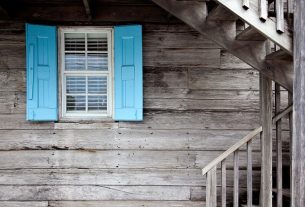House sitting is a win-win solution where individuals reside in others' homes while they're away, providing homeowners with peace of mind and affordable accommodation for sitters. For vacation rentals, it keeps properties occupied year-round, prevents issues, and enhances security. To ensure trustworthiness, conduct thorough background checks, interviews, and set clear expectations with reliable sitters. A comprehensive agreement protecting both parties is crucial, outlining stay duration, tasks, maintenance instructions, emergency contacts, liability, and insurance considerations.
“In today’s travel-focused world, vacation rentals are gaining popularity. However, maintaining these properties during owner absences can be challenging. Enter house sitting—a mutually beneficial arrangement where caretakers live in and take care of a property while its owners are away. This practice offers numerous advantages, from preventing vacancy to ensuring property upkeep.
This article explores the concept of house sitting, delves into its benefits for vacation rentals, provides practical tips on finding reliable sitters, and offers guidance on creating legally sound agreements.”
- What is House Sitting and Why is it Beneficial for Vacation Rentals?
- Finding Reliable House Sitters: Tips and Best Practices
- Creating a Comprehensive House Sitting Agreement
What is House Sitting and Why is it Beneficial for Vacation Rentals?

House sitting is a popular alternative accommodation option that involves individuals living in someone else’s home while they are away, typically for short periods. It offers a mutually beneficial arrangement where homeowners gain peace of mind knowing their property and pets are cared for, while house sitters get free or low-cost accommodation and often have the use of amenities like a pool or garden. This practice has become increasingly popular, especially in the context of vacation rentals.
For vacation rental properties, house sitting is advantageous as it helps to keep the home occupied year-round, ensuring a steady income stream for property owners. It also provides an opportunity to maintain and care for the property, preventing issues like mold, pest infestations, or damage that can occur when a space is left vacant for extended periods. Additionally, responsible house sitters can act as a form of security, keeping an eye on the home and reporting any potential problems or suspicious activity.
Finding Reliable House Sitters: Tips and Best Practices

Finding reliable house sitters is a crucial step in ensuring your vacation rental property is well-cared for during your absence. One of the best practices is to start your search early, as it takes time to vet candidates and find the perfect fit. Begin by asking for referrals from friends or neighbors who have used house sitting services before. Online platforms dedicated to house sitting can also be a goldmine; many offer detailed profiles of sitters, allowing you to check their experience, references, and even criminal background checks.
Another tip is to conduct thorough interviews. Ask potential sitters about their past experiences, the types of properties they’ve cared for, and how they handle unexpected situations or emergency contacts. It’s also essential to set clear expectations regarding tasks like mail collection, pet care (if applicable), and security checks. Additionally, providing a trial period can help you assess their reliability before committing to a longer-term arrangement.
Creating a Comprehensive House Sitting Agreement

When considering house sitting for vacation rentals, it’s crucial to establish a comprehensive agreement to protect both the homeowner and the sitter. This agreement should clearly outline responsibilities, expectations, and terms of the arrangement. Start by detailing the duration of the stay, tasks expected of the house sitter (e.g., mail and newspaper collection, watering plants, feeding pets), and any specific instructions for maintaining the property.
Include provisions for emergency contact information, who is responsible for repairs, and how maintenance issues should be handled. Also, address liability and insurance concerns to ensure both parties are protected. A well-crafted house sitting agreement provides peace of mind and sets clear boundaries, making the experience smoother and more enjoyable for all involved.
House sitting is an excellent solution for vacation rental owners looking to maintain and protect their properties while they’re away. By implementing reliable house sitters, you can ensure your home stays safe, secure, and well-maintained. With the right house sitting agreement in place, both owners and sitters benefit from this mutually beneficial arrangement. So, whether you’re a frequent traveler or a homeowner facing an empty nest, consider house sitting as a flexible and cost-effective option for managing your vacation rental.


